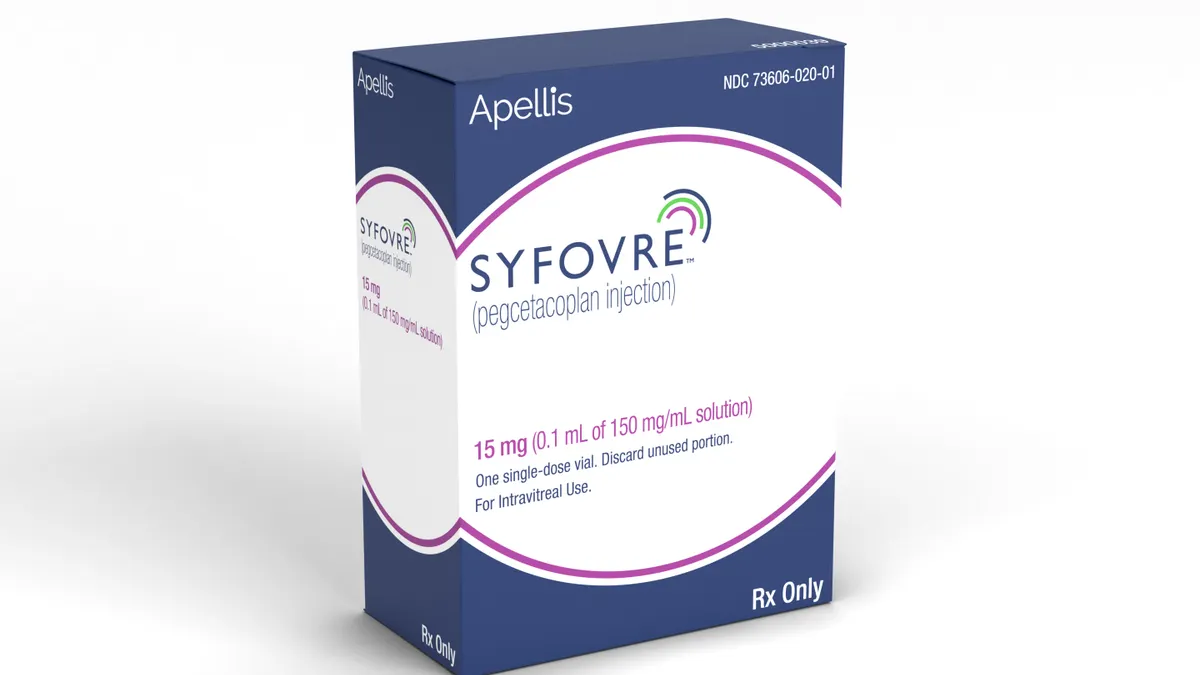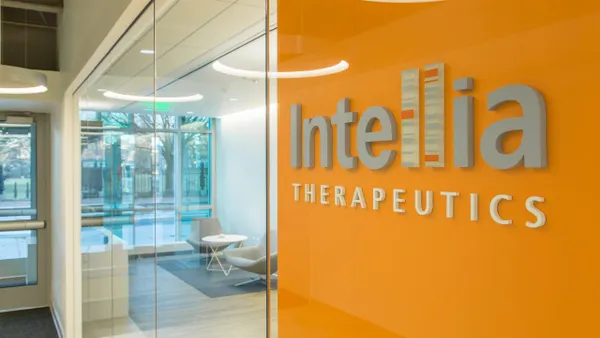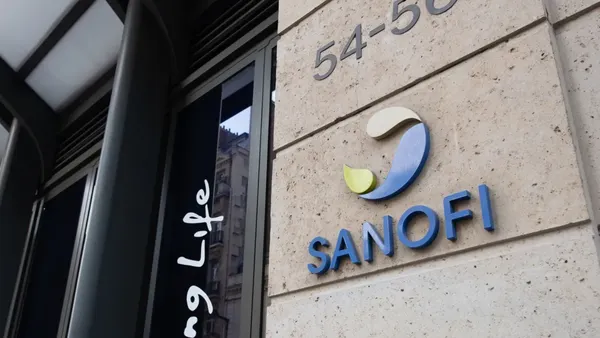European drug regulators have officially turned back a first-of-its-kind eye drug from Apellis Pharmaceuticals despite multiple attempts by the company to have the evidence supporting the medicine’s purported benefits reevaluated.
Apellis on Friday said a committee advising the European Medicines Agency has confirmed a June recommendation to reject an application for pegcetacoplan, a drug sold in the U.S. as Syfovre for geographic atrophy. That decision removes the chances of Syfovre reaching the market in Europe, where the company has estimated that 2.5 million people are living with the disease.
“We are deeply disappointed by this outcome, which leaves millions of Europeans with GA without a treatment for this irreversible form of blindness,” said CEO Cedric Francois, in a statement. The recommendation was made “despite broad support for pegcetacoplan from the European retina community and multiple dissenting votes by [panel] members who supported a path to approval.”
The decision marks the end of a regulatory tussle between Apellis and the Committee for Medicinal Products for Human Use regarding Syfovre, which last year became the first marketed medicine for geographic atrophy, a common, creeping type of vision loss.
Regulators in the U.S. approved Syfovre in February 2023 based on its ability to slow the growth of the patchy lesions that form in the eyes of people with geographic atrophy. Doing so is believed to potentially preserve eyesight, as the lesions can get larger with time and obstruct vision. The drug is important to Apellis’ future, too, as analysts have projected it could become a big enough seller to make the company profitable after years of financial losses.
But Syfovre came to market with questions about its safety and effectiveness and, since its approval, rare but serious side effects have put a blemish on an otherwise steady U.S. launch. Though Apellis has blamed faulty needles, not Syfovre, for those side effects, the Food and Drug Administration last year added a warning to the drug’s prescribing information. A competitor has emerged, too, in Izervay, which Astellas Phama gained in an acquisition shortly before the FDA approved it in August 2023.
Apellis has been hoping to build on its early lead over Izervay with an approval in Europe. But there, it’s had a tougher time winning over regulators.
Committee reviewers issued a negative opinion in January, arguing that Syfovre treatment “did not lead to clinically meaningful benefits for patients” in clinical testing and that regular injections carried “a significant risk” of adverse events. Apellis appealed and, after new panelists were brought in to reevaluate the evidence, got the same result in June. A third and final try has now also come up short, according to Apellis, though an official summary of the committee’s findings isn’t yet available.
“The outcome comes as no surprise to us” given the low success rate of previous re-examination requests, wrote Mizuho Securities analyst Graig Suvannavejh, in a Friday note to investors. While decisions are still expected in the U.K., Switzerland, Canada and Australia, Apellis now intends to restructure its operations in Europe and lay off about 40 employees, he added.
The company didn’t immediately respond to a request for comment regarding the restructuring. Apellis cut 25% of its workforce in 2023 in part to focus more resources around Syfovre’s launch.
Suvannavejh had previously estimated Syfovre could generate about $367 million in peak yearly sales in Europe. A review of Izervay, meanwhile, is ongoing.
Apellis shares fell as much as 10%, to just under $33 apiece, in early trading Friday.















